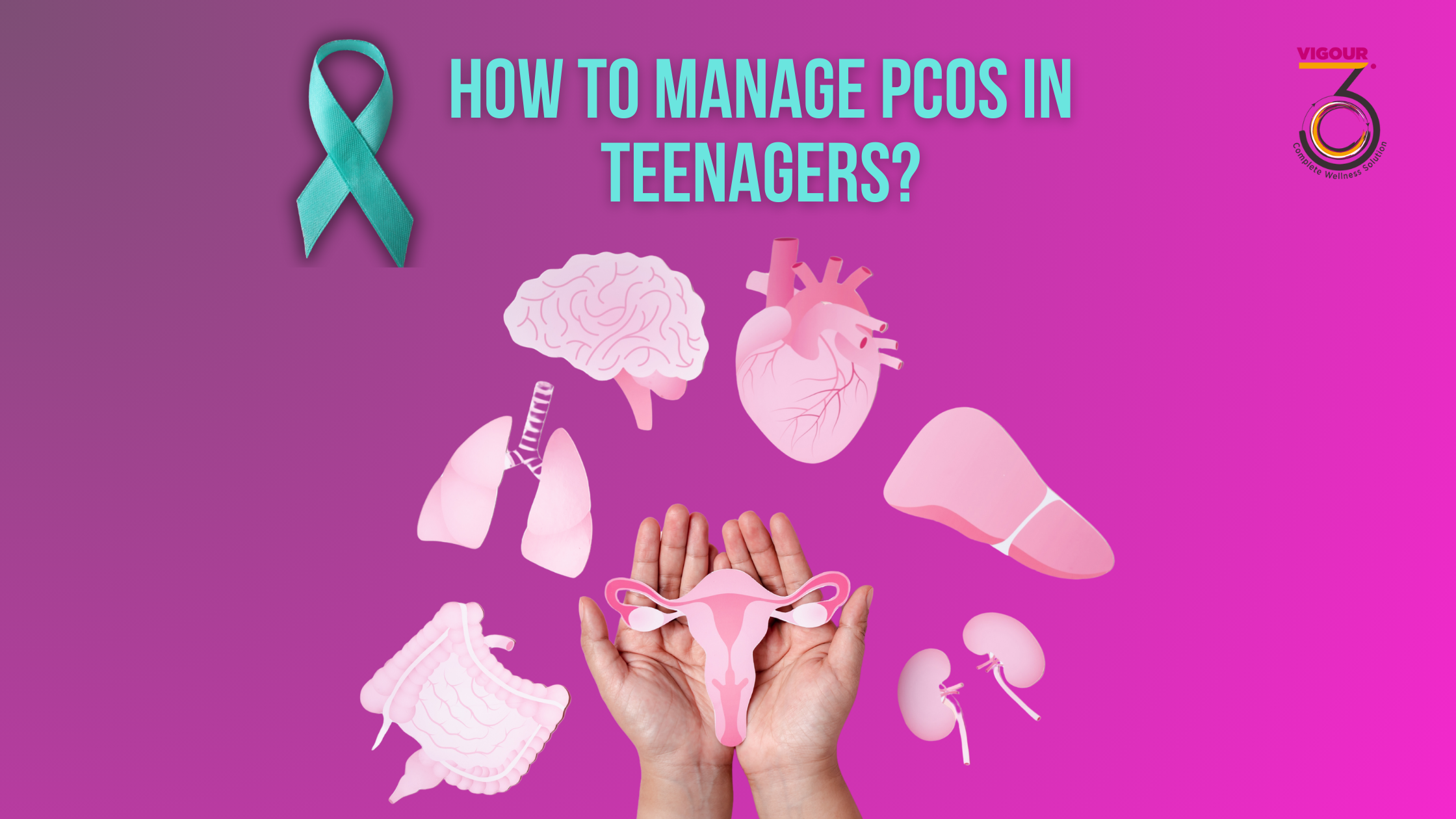Polycystic Ovary Syndrome (PCOS) is commonly thought of as an adult woman’s health issue, but it can—and does—start in teenage years. Early recognition and proper care can make a huge difference in how PCOS affects health, fertility, and quality of life later on.
PCOS is a hormonal disorder characterized by:
- Elevated androgens (male hormones)
- Irregular or absent menstrual cycles
- Multiple small ovarian “cysts” (follicles)
- Insulin resistance or metabolic imbalance
In teenagers, diagnosis can be tricky because puberty itself brings hormonal fluctuations. Some of the overlapping signs:
- Irregular periods
- Acne, oily skin
- Hirsutism (excess hair growth, especially facial)
- Weight gain, difficulty losing weight
- Darkened patches of skin (acanthosis nigricans), especially in folds
- Mood changes, fatigue
Because these symptoms often emerge during adolescence, they can be misattributed to “normal teenage changes.” Early intervention, however, can prevent or reduce long-term complications e.g. type 2 diabetes, cardiovascular disease, infertility.
Core Strategies to Manage PCOS in Teenagers:
1. Healthy nutrition is foundation:
Diet plays a critical role in managing PCOS, especially in improving insulin sensitivity and stabilizing hormones.
- Emphasize whole, unprocessed foods — lean proteins, whole grains, legumes, fruits, vegetables, nuts, seeds
- Reduce refined carbs & added sugars — sugary beverages, candies, white bread, pastries
- Include healthy fats — olive oil, nuts, avocados, fish
- Fiber-rich foods help slow digestion and stabilize blood sugar
- Watch portion sizes — not in a restrictive way, but mindful eating
Small, sustained changes work better than radical diets that are difficult to maintain.
2. Regular physical activity:
Moving the body helps with insulin sensitivity, weight management, and hormonal balance.
- Aim for at least 150 minutes of moderate exercise per week (e.g. brisk walking, cycling, swimming)
- Incorporate strength/resistance training 2–3 times a week (building muscle helps metabolic health)
- Include flexibility and stress-relief exercises (yoga, stretching)
- Make it enjoyable — dancing, sports, group classes — increases consistency
3. Sleep & Stress Management:
Hormones respond to sleep and stress. Poor sleep and chronic stress exacerbate PCOS symptoms.
- Aim for 7–9 hours of quality sleep
- Maintain a consistent sleep schedule
- Practice stress-relieving activities: meditation, deep breathing, journaling, mindfulness
- Avoid overburdening with academic/social pressures
4. Medical Evaluation & Monitoring:
Because PCOS is hormonal and metabolic, medical supervision is important.
- See a gynecologist or endocrinologist experienced with adolescent PCOS
- Get lab tests as recommended by doctors.
- Ultrasound (pelvic) may help, but in teens irregular cycles can make ultrasound less conclusive
- Monitor for comorbidities: insulin resistance, prediabetes, obesity, sleep apnea
5. Medications:
Medical therapy is not always first-line for teens, but in many cases helps with symptom control. The decision to start medication should be individualized, considering risks, benefits, and goals symptom relief, reproductive health, long-term wellness.
6. Emotional & Psychological Support:
Teenagers with PCOS often face issues of self-esteem, body image, and emotional stress.
- Counseling or therapy (e.g. cognitive-behavioral therapy) can help
- Peer support groups or communities is an effective tool.
- Education of family and school environment about the condition is crucial to create awareness and early intervention.
- Encouragement to adopt self-care and balanced lifestyle help to teenager deal with PCOS symptom
Why early management matters?
- Reduce long-term risks like type 2 diabetes, cardiovascular disease, metabolic syndrome
- Preserve fertility and minimize ovarian damage
- Alleviate symptoms (acne, mood, weight) improving quality of life
- Form healthy lifelong habits
In conclusion, managing PCOS in teenagers is not about achieving overnight results but about building healthy, consistent habits that last a lifetime. With the right balance of medical care, lifestyle changes, and emotional support, teens can learn to take control of their health and reduce the long-term impact of PCOS. Families play a vital role in this journey — offering encouragement, understanding, and shared responsibility. Remember, every small step forward counts, and celebrating these wins can keep motivation strong. With patience, awareness, and support, teenagers with PCOS can lead confident, healthy, and fulfilling lives.
At Vigour360, we are committed to spreading awareness about PCOS and guiding schools, parents, and teens toward healthier choices. Together, we can create an environment where young girls feel supported, informed, and empowered.

Comments (0)